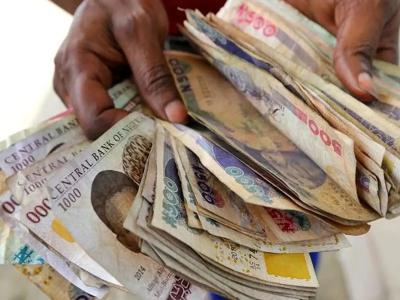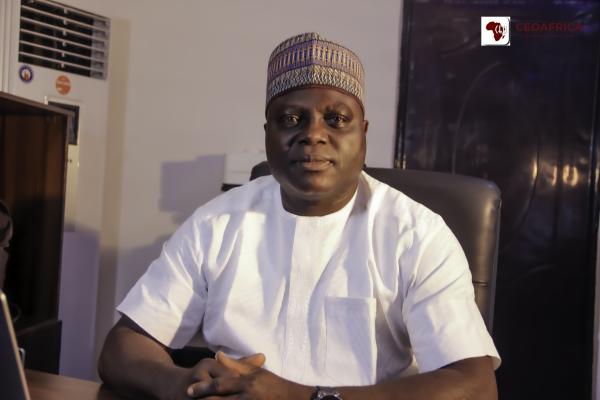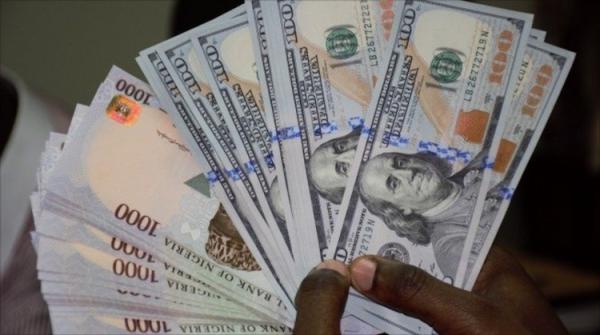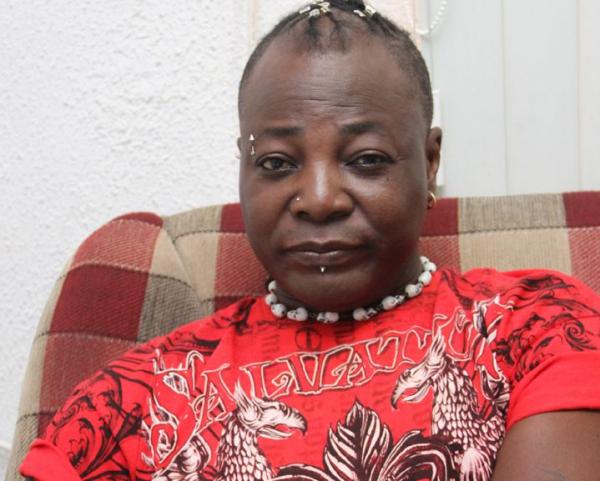
Friday, 14 May 2021: There was a time when the nation’s currency, the naira was one of the strongest currencies in the world as it was equivalent to the British Pound and worth almost twice as much as the US dollar.
Almost three decades later, the local currency is valued at ₦479 per dollar and ₦665 per Pound on the spot rate, ₦380 per dollar and ₦536 on the official CBN website as at Wednesday, May 12, 2021. On the black market, the naira is trading at a measly ₦483 per dollar and as low as ₦673 to the Pound.
The declining fortune of the nation’s currency against other currencies may continue for a very long time with the possibility that it may not be able to regain its former glory, analysts have forecasted.
Over the past few years, the story central to naira’s descent from grandeur has revolved around multiple exchanges, contradicting statements from officials, oil prices, wobbly economic fundamentals, dollar scarcity, and static exchanges.
According to Head Consultant at Premium Capital, Lagos, Ogbonna Ikechukwu, he opined that “it will take only a miracle for the naira to recover its lost value.”
He said, “Things have really changed for the naira. The monetary authority is not looking at strengthening the naira but actually defending the dollar against it. I am not seeing any plan or action, which will boost the naira now or in the nearest future”.
Considerably, many major institutions have urged Nigeria to unify the multiple exchanges in an effort to promote transparency. The whole saga behind multiple exchanges was triggered by the crude oil crash in 2014, which saw the commodity plummet by almost 50 percent.
Bearing in mind how more than 90 percent of Nigeria’s foreign-exchange earnings are from oil revenues, the heavy selloff in oil prices exposed Nigeria’s economy to downside shocks.
In his recent exposé on the decline of naira, Lukman Otunuga, a Senior Research Analyst at ForexTime Ltd, (FXTM), Nigeria averred that “Rather than devalue the naira in 2017, the central bank decided to enforce multiple rates for different transactions. There is one rate for government transactions, one rate for investors and exports, another for travellers and SMEs. Indeed, the intention behind this was to improve liquidity and boost dollar inflow.
“However, looking at the naira’s valuation today, ongoing issues with dollar scarcity and untamed inflation – this move may have done more harm than good.
“2020 was an incredibly challenging year for Africa’s largest economy. Although the economy expanded by 0.11 percent during the final quarter of 2020, full-year growth contracted by 1.92 percent.”
As oil revenues dissipated, naira was devalued twice. Indeed, a weaker naira would boost government revenue from oil exports – an encouraging development for the economy. If the naira depreciates, this could boost revenues from crude oil, which is sold in dollar but converted to naira the value get lost.
Despite the weakening of the spot and black-market rate, the central bank has left the naira pegged to N380 on its official website.
Otunuga added, “For the naira to return to its former glory, could a free-floating currency be the solution? Vice President Yemi Osinbajo said the government is committed to adopting a flexible exchange rate. While an artificially strong exchange could benefit Nigeria based on the fact that most products are imported, the negative impacts outweigh the positive.
“This continues to be reflected in the naira’s valuation and health of the economy. When considering how a hefty chunk of foreign exchange reserves is acquired from oil sales, falling oil prices could complicate the Central Bank of Nigeria’s effort to defend the naira”.
Nigeria continues to face pressure from major international institutions to reform its foreign exchange policy with confusion around the country’s multiple exchange rates, which is wading off investors’ interest. The question is whether Nigeria will be able to handle the repercussion from a free-floating naira?
The country spends roughly 70 percent of its revenue servicing public debt. A devaluation of the naira could mean higher interest rate costs on the dollar element of Nigeria’s debt. The price of electricity and gasoline may be impacted, something that will hit consumers and ultimately impact the economy.
Stephen Iloba, a Lagos-based economist, while lending his voice on the subject of the declining naira opined that “hope is not all lost for the naira” as he said things have to go bad before they get better.
“My position here may be strange but that is the fact. The CBN has to allow the naira to float. It is at this stage that we will know the real value of the naira. What we currently have is veiled floating. There should be a free float”, he added.
Otunuga further stressed that “if the natural forces of supply and demand are allowed to determine the equilibrium value of the official naira exchange rate, this could result in a steep depreciation of the national currency. The rates in the black-market exchange are a testament to this. Such developments could turbo-charge inflationary pressures and prompt the Central Bank of Nigeria to tighten monetary policy”.
He is of the opinion that the idea of a unified exchange rate could bolster Nigeria’s economic outlook, offer transparency and rekindle investor attraction towards the country’s assets. But it remains unknown if or when the naira could return to its former glory, especially when the domestic economic conditions and challenges across the globe is factored in.





















